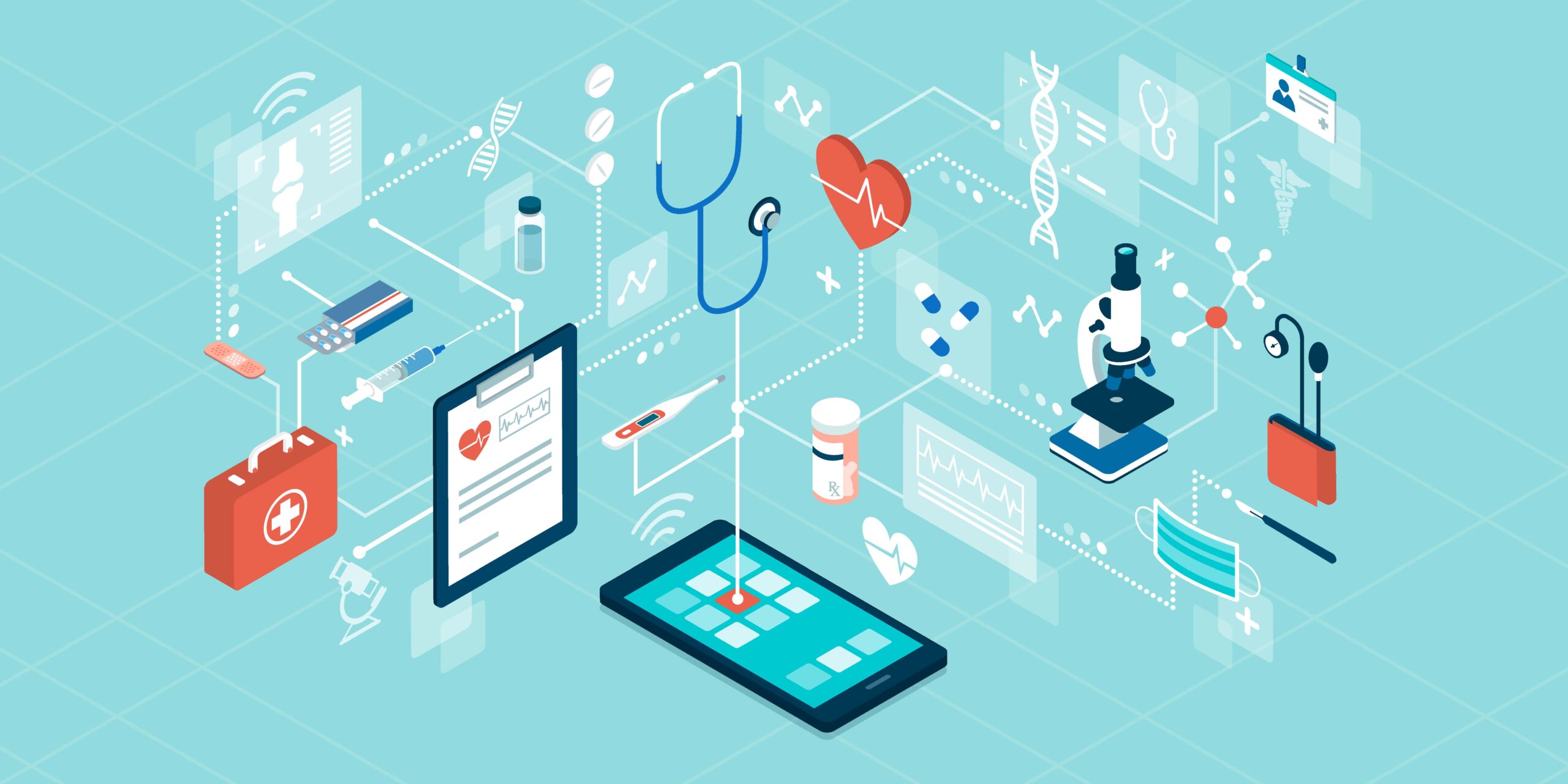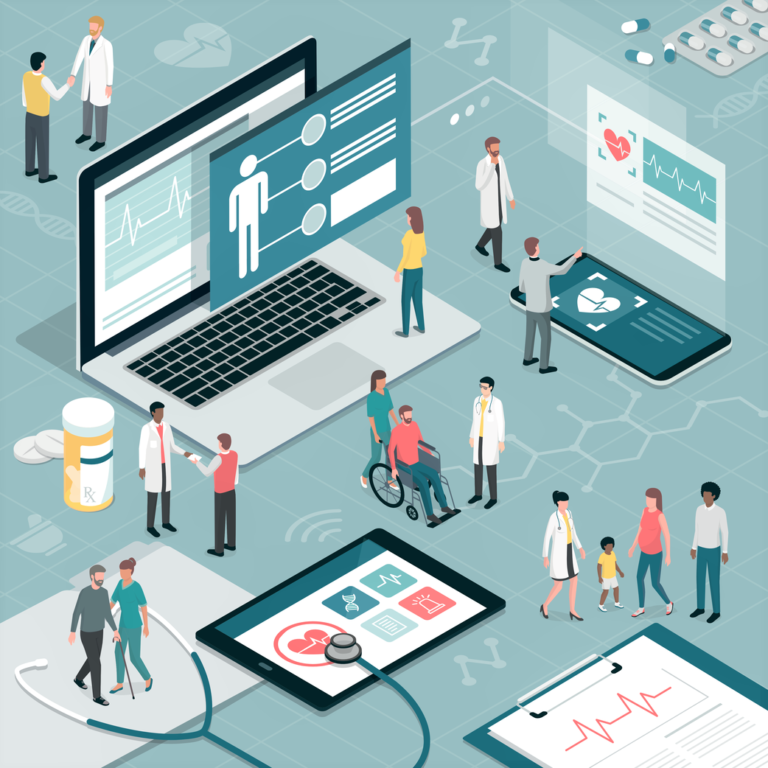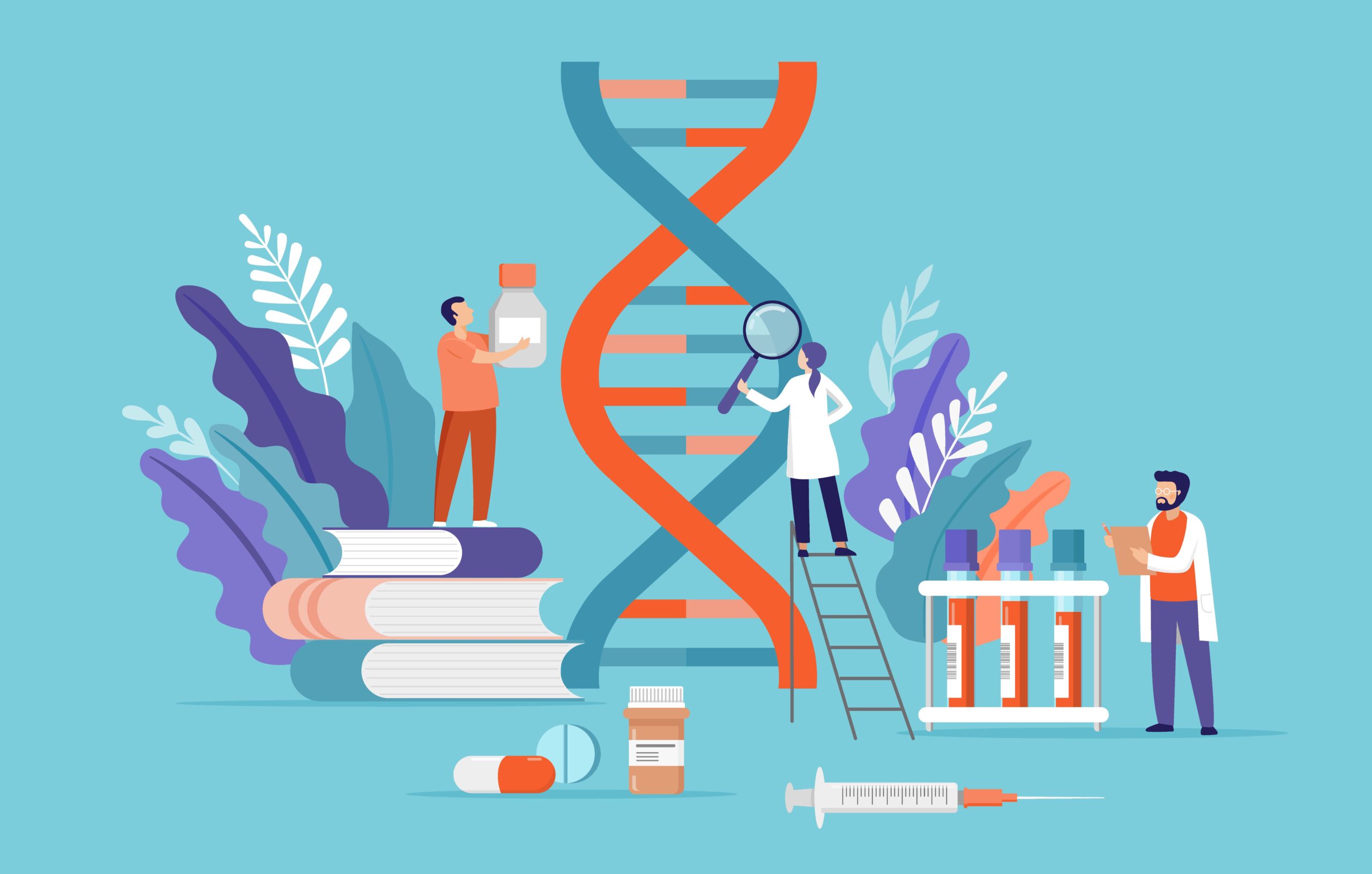57
Actionable Gene
90
Screening Tests
50
Drug Safety
40
DISEASE Risk
Precision Medicine
Precision medicine takes individual variability and disease mechanism into account in the prevention, diagnosis, and treatment of diseases. The idea is to collect comprehensive data (genetic, biological, clinical, environmental, and life-style data) on a large population and use computational methods to classify subpopulations based on disease and disease outcome.

Big Data
Technological advances over the last two decades have ushered in the era of "big data" that will have significantly impact on how healthcare is delivered a round the world.
The ever increasing computer speed and ever decreasing cost of computing and data storage make data analysis possible. With approaches based on artificial intelligence, one can find signals of clinical significance in the data.



Challenges of implementing Precision Medicine
Attempts have been made to implement "precision medicine" in general clinical practice but there are two major challenges:
(1) collect comprehensive genetic, biological, and clinical data on large population is expensive; (2) data from people of different genetic backgrounds cannot be analyzed together because disease susceptibility and drug metabolism are highly influenced by ethnic differences.
CLINICAL APPLICATION
The TPMI has four integrated elements. First, a set of reference genomes representing the Taiwanese population has been constructed. Second, a low-cost, population specific, high density SNP array (Taiwan Precision Medicine SNP array) for genetic profiling has been designed and validated. Third, genetic profiling will be obtained from 1 million participants who have consented to share their comprehensive clinical data. Fourth, the genetic and clinical data will be analyzed using artificial intelligence (AI) approaches to classify patients into subpopulations against which all future patients can compare to determine their disease risk.

Precision Medicine
Benefits to Health
Health benefits include tailored management based on a patient’s genetic profile, such as individualized drug selection and dosing for best therapeutic response and prevention of adverse drug reactions; and early disease screening for patients at high risk for cancer, stroke, and heart disease.The genetic profile also includes HLA typing and blood typing, which will streamline tissue matching for transplantation.
Patient care will be improved and overall medical cost will decrease.Stratifying patients for early cancer screening based on genetic risk will not only save lives, but also reduce the need for very expensive targeted cancer therapy for those with metastatic cancer when the disease is diagnosed too late for curative surgical resection.
- Big Data: The Taiwan Precision Medicine Initiative
- Journal of Healthcare Quality 13(6),:26-30
To realize precision medicine in Taiwan, the foundational work of collecting genetic profiles and clinical data from a large Taiwanese cohort must be done.
We are inviting 1 million participants to join this initiative. Please contact one of our partner hospitals to join the TPMI. As part of the project, the genetic profiles of TPMI participants will be incorporated into their medical records and the results will be used in their health management.
Enrolling 1 million people by 2023
Contact us
- tpmi@ibms.sinica.edu.tw
No. 128, Sec. 2, Academia Rd., Nangang Dist., Taipei City 115, Taiwan
Location and Map | tpmi@ibms.sinica.edu.tw | Privacy and Security
© 2020 Taiwan Precision Medicine Initiative | designed by Resource Center for Translational Medicine


